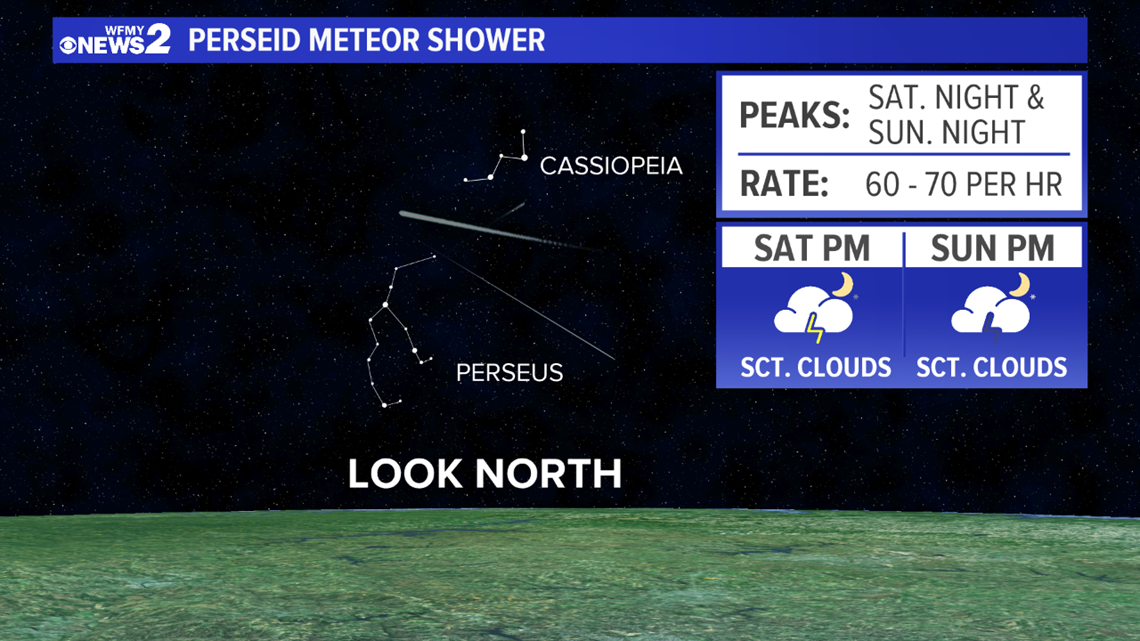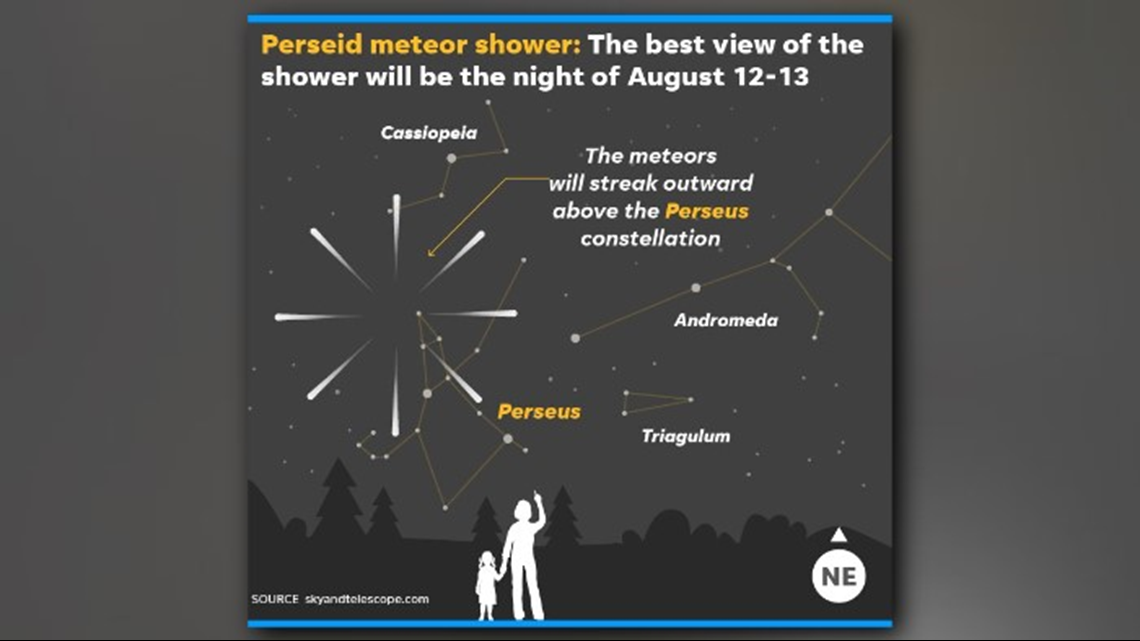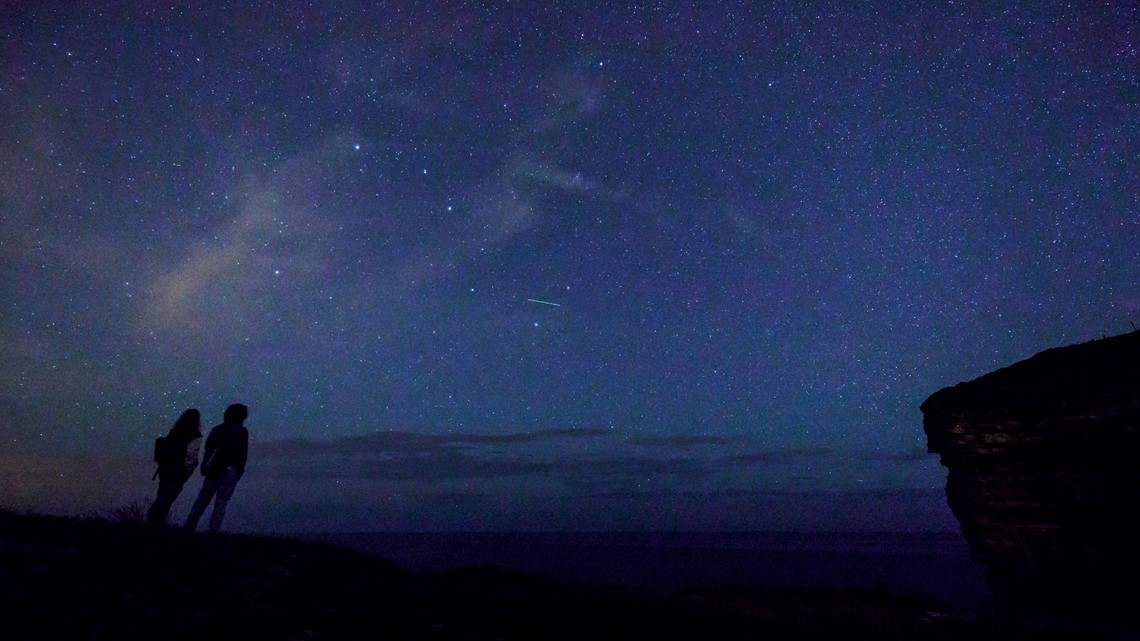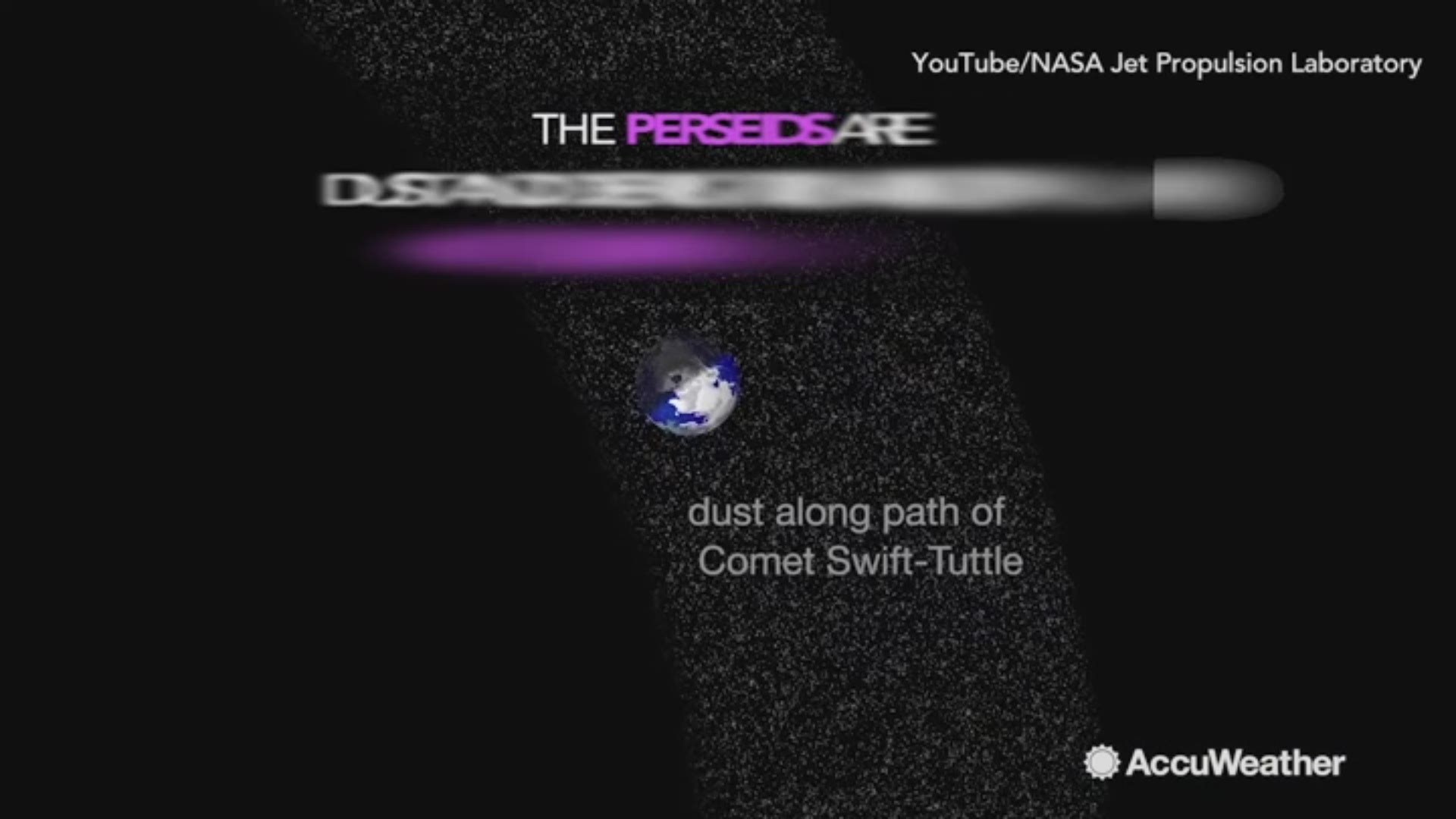GREENSBORO, NC -- You'll have to look in between the clouds, but you won't want to miss the best meteor shower of the summer months - the Perseids - this weekend.
Each year, this is one of the most reliable displays of shooting stars, and a real treat for star gazers. This year, it peaks on a weekend, with both Saturday night and Sunday night having the best chance to see between 60 and 70 meteors per hour.
Unfortunately, the weather won't be perfect here in North Carolina. We'll have occasional cloud cover and even a few showers or a storm both nights. It won't be cloudy all weekend though, so try your luck and see if you can get some clear skies.


The view will be extra special since the moon is in its new moon phase. This means moonlight won't make the meteors a little tougher to see. It's like being in a dark room, rather than one where there's still a light on.
An added bonus is that moonlight will not interfere with the spectacle this year. "The moon will be near new moon, it will be a crescent, which means it will set before the Perseid show gets underway after midnight," NASA's Bill Cooke told Space.com.
Another bonus of this particular meteor shower is that they happen during the summer warmth. The other great meteor showers of the year happen during November and December, when you need to muster up a bit more courage to hang outside in the middle of a cold night.


The Perseid meteor shower occurs every year when the Earth passes through the cloud of debris left by Comet Swift-Tuttle. The meteors are actually tiny dust and particles from the tail of the comet as it orbits around the sun.
The particles, many no bigger than a grain of sand or a pea, blast across the sky at some 132,000 mph and disintegrate high up in our atmosphere after making a brilliant flash of light.
Meteor showers are named for the constellation out of which they appear to come, according to the American Meteor Society. Look for the constellation Perseus in the northeastern portion of the sky. It's just to the left of the Pleiades, the Seven Sisters constellation.



